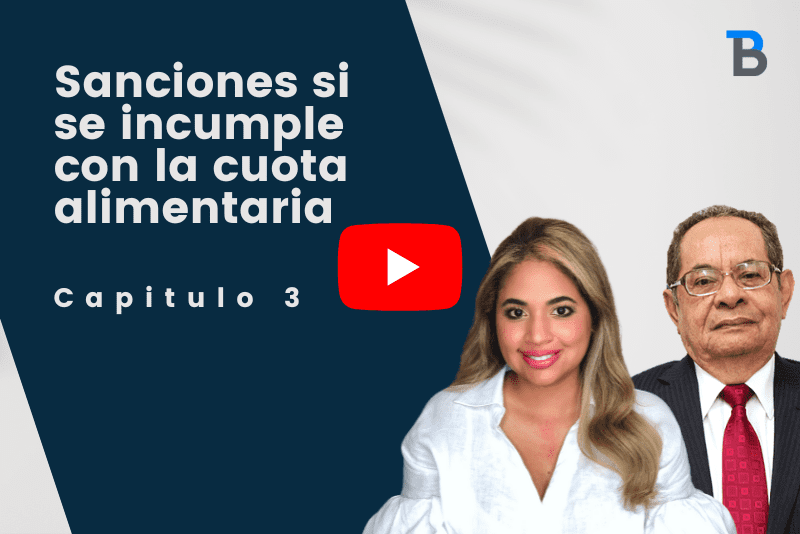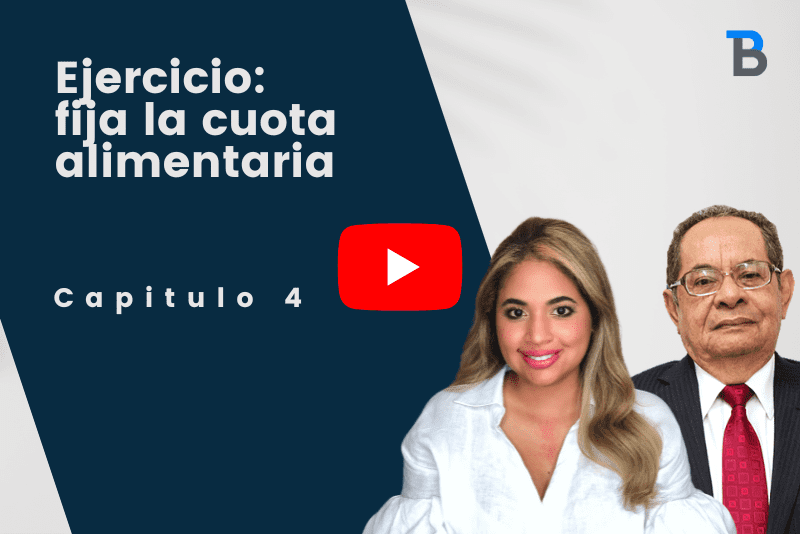
Deprivation of parental authority: judicial emancipation allows the judge to deprive the exercise of rights over their children who have suffered child abuse, abandonment or depravity. Also when one of the parents has been sentenced to imprisonment for more than one year for any offence.
Joint custody: In Colombia, the joint custody regime is accepted as long as it does not imply emotional or physical risks for the minor.
Guardianship and custody process before a judge: The family judge is the one who ultimately decides on the guardianship and personal care of the minor.
How do I get custody of my child in Colombia?
What is child custody and personal care?
Custody refers to the custody and personal care of the children that by law corresponds to the parents, but in the case of divorce or separation, among others, the judge must be asked, through a custody and visitation regulation process, to determine with which of the parents the child should live, taking into account the child’s well-being.
New law 2229 of 3 2022 regulates visitation for grandparents
The judge shall order the regulation of visits to grandparents in the maternal or paternal line, when their children do not have personal care of the grandchildren, when their children deny or remove their grandchildren, preventing them from having a relationship with them, and may also deny or regulate visits to parents or grandparents who have been convicted by an enforceable judgment for committing crimes of domestic violence or crimes against freedom, integrity and sexual education, or who have psychiatric diagnoses that represent a danger to the integrity of the minors.
What does law 1008 of 2006 say about custody and personal care?
Article 23 of Law 1098 of 2006, when referring to custody and personal care, presents it as a right of children and an obligation of parents or legal representatives, and translates into the office or function through which one has the power to raise, educate, guide, lead, form habits, direct and discipline conduct.
It also contemplates that children and adolescents have the right to have their parents, in a permanent and supportive manner, assume direct and timely custody for their integral development.
However, when the parents are separated and it has not been possible to establish by means of an administrative process before a police station or before a conciliation centre who the minor will live with, the judge, through a custody and visitation process, may determine, after due process and knowledge of evidence, with which of the parents the minor should live, always taking into account the best interests of the minor and the best guarantees for his or her adequate development.
What is the custody process about?
Custody proceedings are initiated by one of the parents to request a court to determine whether it will be the father or the mother who will have custody and personal care of the child.
In this process, it is possible to request not only that custody be granted to one of the parents, but also the regulation of visits and the fixing of the maintenance quota for the parent who does not have custody, that is to say, through this process the way in which the parent who does not live with the child will share time with the child is regulated and the maintenance quota is fixed.
What do I have to do to start the custody process?
All legal proceedings related to minors must have a focus on guaranteeing the rights and best interests of the child or adolescent, so it is important to bear in mind the following points:
First, a conciliation hearing is required before custody proceedings can be initiated and can be held at a conciliation centre or a police station. At this point we offer you the best support to carry out your conciliation hearing..
Second: we draft and present the custody and visitation claim before a family judge, with all legal requirements fulfilled and supported by the evidentiary material required for the success of the process.
Third: we attend the hearings before the judge where the judicial conciliation stage takes place, the oral trial hearing, the evidence is examined and finally the judge issues a sentence.
How long does the custody process take?
The custody proceeding is a verbal summary proceeding, which means that it is a single instance proceeding, which is brought before a Family Judge of the domicile where the child is located. Once the process is admitted it lasts approximately 5 to 8 months, but ultimately the duration is subject to the speed of the court to which the process is assigned.
Can I apply for visitation and maintenance?
Of course. In a single procedure, if there is no agreement on visitation or the maintenance quota, the judge may be asked to proceed in the same way to regulate it for the parent who does not have custody of the child, and may even request, as a prior measure, that a provisional quota be set with the admission of the application to guarantee the rights of the child while the value of the maintenance quota is definitively fixed in the judgement.
CUSTODY PROCESS
Documents
1. Evidence of the child’s well-being: studies, sports, photos with the family.
2. Employment certificates, which demonstrate the employment stability of the custodial parent.
3. Lease or deed to the residence of the custodial parent.
4. Copy of the identity card with address and telephone number of 3 witnesses who can ratify the facts of the complaint.
5. A written statement clearly and precisely describing the facts that give rise to a request to a judge for custody and personal care of the child.
Important
As long as the proceedings continue and the judge has not made a different decision, the agreed maintenance quota is to be complied with.
To bear in mind
The judge competent to hear family matters is the family court of the place where the child is domiciled.
 (+57) 300 300 98 59
(+57) 300 300 98 59

















